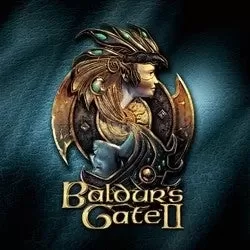Baldur’s Gate 3 sees a spike in players with its last major update. Discover what’s new for fans and the details of Patch 8’s additions.Baldur’s Gate 3 Patch 8 Now Available!Steam Player Numbers Soar
Author: AllisonReading:0
Mark Darrah, former executive producer of the Dragon Age series, expressed concerns that EA and BioWare failed to adequately support his team during the early development of Dragon Age: The Veilguard.
In a recent YouTube video, the former BioWare developer shared insights into his work on the iconic fantasy RPG franchise, focusing on events in 2017, which he described as “the most pivotal year in BioWare’s history.” He discussed decisions impacting the initial development of last year’s Dragon Age title and how a shift in priorities affected the final stages of Mass Effect: Andromeda.
In late 2016, Darrah was reassigned to oversee the final development phase of Andromeda. He noted that the Dragon Age team felt “neglected” and lacked sufficient support from BioWare and EA. The intention was for Darrah to help complete Mass Effect, freeing up resources for Dragon Age, but this plan fell short of expectations.
“This marked the first instance of leadership disruption, where a project lead was pulled to assist another project while their own continued without them,” Darrah said. “For Mass Effect: Andromeda, the impact on Dragon Age was minimal and short-lived, but it set a risky precedent. Running a project without its core leadership is highly problematic.”
Mass Effect: Andromeda launched in March 2017 to a disappointing reception, according to Darrah. Meanwhile, BioWare underwent a structural overhaul, reporting to new EA leadership with an intense focus on its projects. Darrah described this shift as significant, noting that the new leadership showed little interest in continuing Mass Effect after its troubled launch. However, he felt Dragon Age still lacked the necessary support even after Andromeda’s release.

 New duel
New duel 1ST
1ST 2ND
2ND 3RDSee your ResultsFinish playing for your personal results or see the community’s!Continue playingSee results
3RDSee your ResultsFinish playing for your personal results or see the community’s!Continue playingSee resultsDarrah raised his concerns with EA CEO Andrew Wilson and former executive Patrick Söderlund, who assured him of Dragon Age’s priority within the company. Despite limited resource allocations in the summer of 2017, BioWare staff learned unexpectedly that veteran Casey Hudson was returning to the studio, a decision made without consulting senior team members.
“As the second most senior person at BioWare, I was completely excluded from the process of interviewing and hiring Casey,” Darrah said. “While my involvement might not have changed the outcome, the lack of consultation showed a significant lack of respect for someone in my position.”
Darrah anticipated that BioWare would pivot its focus to Anthem. Despite assurances from EA that Dragon Age would receive proper attention, he felt otherwise.
“As we all know, that’s not what happened,” he said.
EA’s focus shifted heavily toward Anthem until its troubled 2019 launch, while Darrah felt his trust in the company was repeatedly undermined. Resources were consistently diverted from what would become Dragon Age: The Veilguard through 2019, resulting in what Darrah called “fundamental” changes to the project’s scope.
Dragon Age: The Veilguard launched in late 2024 as BioWare’s latest major fantasy RPG. Despite earning critical acclaim (including a 9/10 in our review), EA deemed its launch underwhelming, stating in February that it failed to “connect with a wide enough audience.” Former BioWare developers disputed this, with some recommending EA take inspiration from Baldur’s Gate 3 developer Larian Studios.
In January, many Dragon Age developers were laid off as BioWare shifted its focus to Mass Effect 5.
 LATEST ARTICLES
LATEST ARTICLES